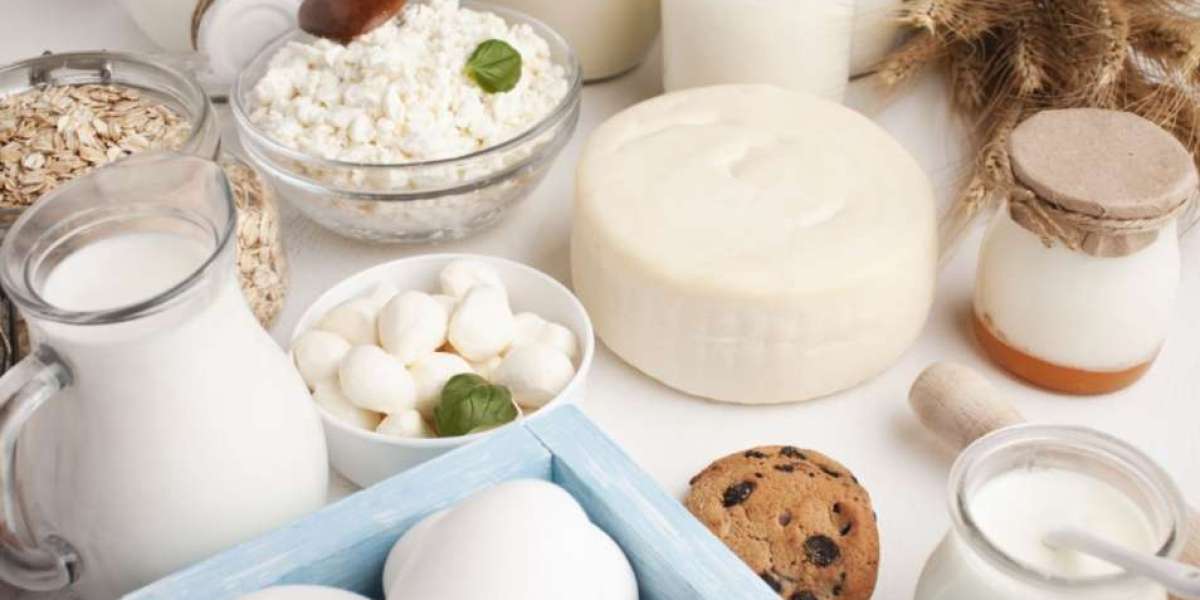In recent years, there has been a growing demand for organic and dairy-based products, as more consumers seek healthier, sustainable, and environmentally-friendly food options. As the wellness movement continues to shape our food choices, understanding the benefits of organic and dairy products has become increasingly important. Let’s dive into why these two categories are gaining so much attention and what makes them stand out in today’s food landscape.
What Are Organic Foods?
Organic foods are those grown without the use of synthetic pesticides, herbicides, or fertilizers. They are produced using natural methods that aim to protect the environment and promote the health of both consumers and farmers. For food to be labeled as organic, it must meet strict standards set by certification bodies such as the USDA in the United States or the EU Organic Certification in Europe.
When it comes to dairy, organic milk and products come from cows that are raised without antibiotics or hormones and are fed organic feed. The focus is on producing wholesome, nutrient-rich food while minimizing the impact on the environment. Many consumers choose organic dairy because they believe it is healthier and more sustainable compared to conventionally produced products.
The Benefits of Organic Dairy
Fewer Chemicals: Organic dairy products are free from the harmful chemicals often used in conventional farming, which appeals to health-conscious individuals concerned about pesticide residues or hormone exposure.
Rich in Nutrients: Studies have shown that organic milk contains higher levels of omega-3 fatty acids, antioxidants, and other beneficial nutrients compared to regular milk. These nutrients are essential for brain health, immune function, and cardiovascular wellness.
Environmental Sustainability: Organic dairy farming practices focus on sustainability, with an emphasis on soil health, water conservation, and reducing pollution. Many organic farms use crop rotation, composting, and other eco-friendly techniques to maintain a healthy ecosystem.
Animal Welfare: Organic farms typically provide better living conditions for cows. These animals are allowed to graze on open pastures and are given more freedom, which is not only ethically sound but can also improve the quality of the dairy products.
The Role of Dairy in a Balanced Diet
Dairy products like milk, cheese, and yogurt are rich in essential nutrients, including calcium, vitamin D, and protein. These nutrients are crucial for maintaining healthy bones, teeth, and muscle function. While many people are turning to plant-based alternatives, dairy still plays a vital role in many diets around the world due to its nutrient density and versatility in cooking.
Organic dairy, in particular, may offer an added layer of health benefits due to its reduced exposure to harmful chemicals and its focus on natural farming practices. Whether consumed in its traditional form or incorporated into various recipes, organic dairy can be part of a balanced and nutritious diet.
Organic and Dairy: A Growing Trend
The shift toward organic and dairy foods is part of a larger movement toward cleaner, more sustainable food choices. According to recent market research, the organic food market continues to expand at a steady pace. More consumers are looking for alternatives that support their health while minimizing their environmental footprint.
This shift is also evident in the dairy industry, where many consumers are now seeking organic milk, cheese, and yogurt as a part of their grocery shopping habits. With this demand, brands are responding by offering a broader range of organic dairy options, including lactose-free products, grass-fed milk, and artisanal cheeses.
Challenges and Considerations
Despite the clear benefits, there are challenges associated with organic and dairy food production. Organic products tend to be more expensive due to the costs associated with maintaining organic farming standards and the lower yields organic farming often yields. This can make it harder for some consumers to incorporate organic foods into their daily lives, particularly in areas where organic options may not be readily available.
Additionally, the dairy industry is facing increased scrutiny from health experts and environmentalists regarding the carbon footprint and health impacts of dairy farming. While organic farming is generally more eco-friendly than conventional methods, dairy production, in general, is resource-intensive and contributes to greenhouse gas emissions. For individuals concerned about these factors, exploring plant-based alternatives might be a consideration, though they may not provide the same nutritional benefits as traditional dairy products.
Conclusion
Dairy and organic food Japan continue to gain popularity as consumers prioritize health, sustainability, and animal welfare in their purchasing decisions. Organic dairy, in particular, offers a wealth of benefits, from reduced exposure to chemicals to enhanced nutritional value. As the demand for these products rises, it’s clear that both industries will continue to evolve, meeting the growing needs of health-conscious and environmentally aware consumers. Whether you’re a long-time advocate for organic foods or just beginning to explore the benefits, there’s no denying that organic and dairy products are here to stay in the modern food landscape.








